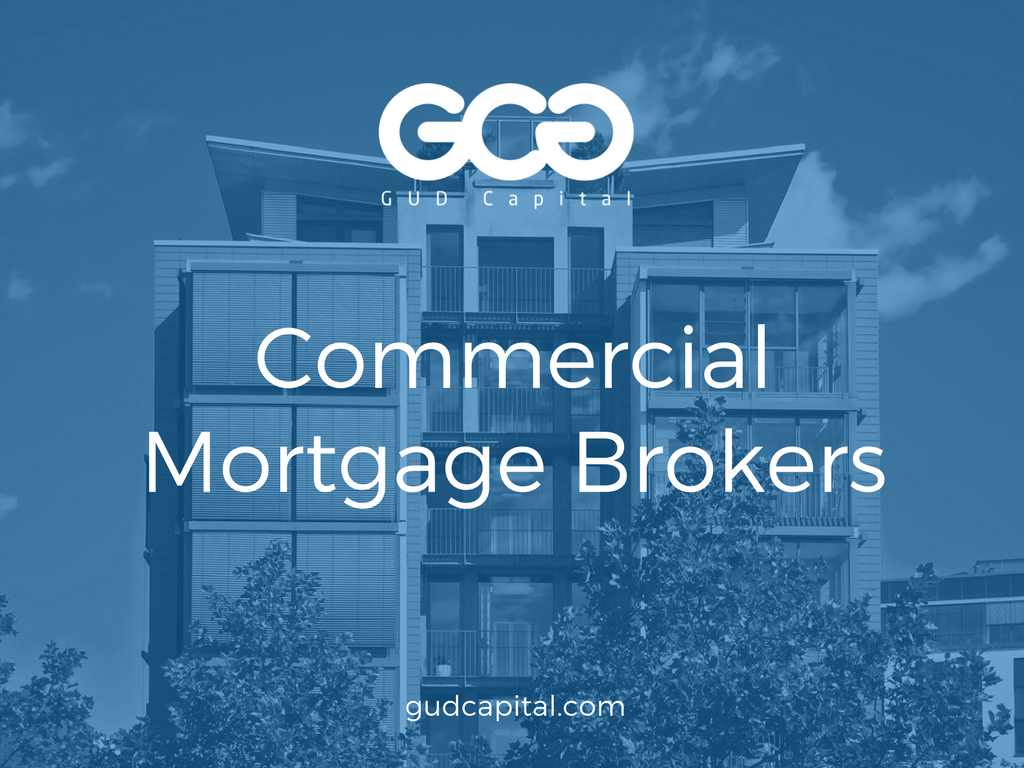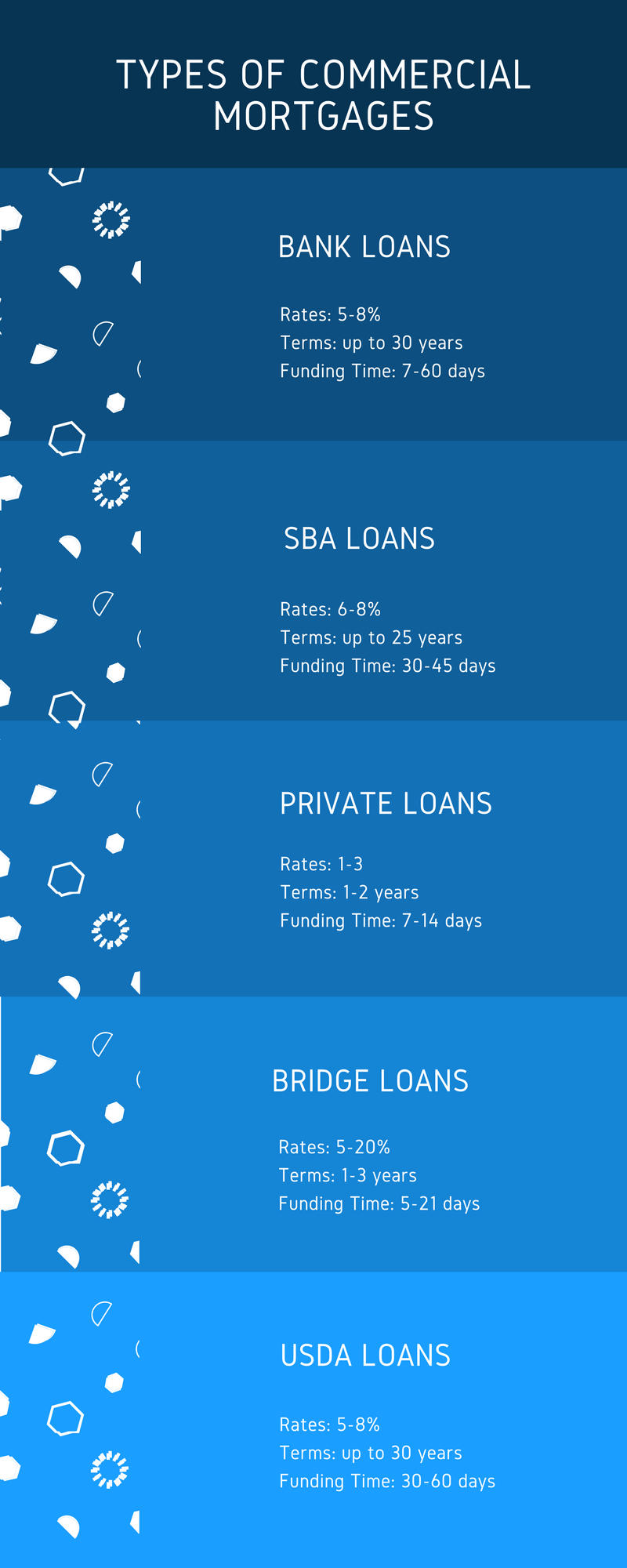Business Mortgage Brokers
If you’re a business looking to acquire commercial real estate to use for business operations, a business with a current mortgage that you’re looking to refinance, or an investor looking to purchase or refinance investment property, finding the right loan that meets your needs isn’t exactly easy. While many of us would like to simply walk into our local bank and obtain a mortgage for commercial purposes, its just not that easy. Unless your credit is perfect, have fantastic net revenues, and have substantial equity in the properties, the chances of getting approved for the mortgage that best meets your needs may be evasive. Even if you do find a commercial lender willing to provide you financing, it may not be the rates and terms that you were seeking or, possibly, the lender charges too many points or has substantial prepayment penalties associated with the mortgage. Navigating the commercial mortgage process takes both knowledge and skill to get the best rates, along with lots of connections to not only quality commercial real estate mortgage lenders, but having great connections with the underwriting departments within the lending institutions. In this article, we’ll discuss the what a commercial mortgage broker is, and the roll of commercial mortgage brokers in the real estate lending process.
What is a Commercial Mortgage Broker?
A commercial mortgage broker is a trained financial specialist with expertise in providing businesses and investors options and services in securing a commercial mortgage. A business owner or investor seeking a commercial mortgage will seek-out a commercial loan broker to help advise them on the best course of action to get funding, inform the borrower of all the commercial real estate lending options at their disposal, and help the borrower package the paperwork and negotiate rates and terms with a lender. Unlike working with a single bank to obtain a commercial mortgage, a business owner or investor can work with a commercial mortgage broker and access dozens, if not hundreds, of commercial lending options.
Benefits of a Commercial Mortgage Broker?

- Knowledge: By hiring a commercial mortgage broker to help you navigate the funding process, you are using their deep knowledge of the mortgage process to help you successfully secure the best rates and terms. A good mortgage broker will consult and listen to the borrower about the exact needs/desires the borrower is seeking in a financing facility. After listening the borrower, the broker will then review the property owner’s financial documents to get a better understanding of their financial situation. After the review, the broker will discuss with the borrower all the options available, and present a plan for obtaining funding.
- Expertise: A good mortgage broker will know all the lending options available for the client and execute a plan to obtain the best rates and terms. They’ll have not only a firm understanding of real estate in general, but they’ll also know all the funding options available to businesses and investors seeking a commercial real estate mortgage.
- Connections: One of the keys to hiring a good commercial mortgage broker is to use a brokerage that has lots of connections to many different lenders. A good broker will be able to submit your package to many lenders, and let the lenders compete to provide the best offer – as even saving the borrower a point or two could mean tens of thousands, if not hundreds of thousands of Dollars in savings. Additionally, while its important that the broker has access to plenty of commercial lending options, its also equally important that they have a good relationship with the underwriters and decision-makers at the lending institution, as a good brokerage relationship can help a loan get over the final hurdles with approvals and funding.
Drawbacks of Working with a Commercial Loan Broker?
- Broker Fees: Fact is, brokers make money by charging the client fees for either their packaging services, or a success fee paid upon funding. Some commercial mortgage brokers may charge an upfront fee to the borrower at the beginning of the process which may or may not be refundable. Additionally, most brokers will also charge the borrower a fee that is equal to a percentage of the loan amount upon execution of funding papers. Upfront fees and success fees vary depending upon brokers, and some don’t charge any fees at all (usually when compensated directly from the lender).
- Exclusivity Period: While its not standard practice with all commercial mortgage brokers, some brokerages will require the borrower to provide an exclusivity period to the broker so that they will have full-rights to exclusivity for providing the borrower with a loan. During that period, the borrower will be prevented from working with any other brokers, and if the borrower should obtain financing on their own, they may still have to pay the broker a fee at closing.
- Lack of Control: When you work with a broker you’d, ideally, like to know where the broker is sending your loan documents. Unfortunately, its not uncommon for commercial mortgage brokers to blast your sensitive financial documents to dozens of unvetted lenders, possibly putting your personal information in unscrupulous hands.

Types of Subprime Business Loans:
- Bank Loan Brokers: this type of mortgage broker works with conventional banking institutions to provide traditional mortgages to both businesses and investors. Bank mortgages offered by large banks, small banks and community lenders provide borrowers with the best rates (starting at 5%) and terms (up to 30 years) of all lending options. Since few conventional lender pay success fees to brokers for completed loans, most brokers will charge the borrower a fee at closing.
- SBA Mortgage Brokers: This type of commercial broker has an expertise navigating the SBA 7(a) and SBA 504 lending programs relating to commercial mortgages. Additionally, a good SBA mortgage broker has many connections to SBA lenders that focus on commercial real estate, and can provide lending options in every state and region. A SBA mortgage broker may charge up to $2,500 to package the loan, although many brokers don’t charge this fee at all (like GUD Capital). Additionally, a SBA mortgage broker may charge anywhere from 0-3% success fee at closing.
- USDA Mortgage Brokers: This type of broker works with businesses in rural areas to obtain commercial real estate mortgages using conventional lending institutions backstopped by the USDA. In order to qualify for a USDA commercial mortgage you’ll need to have your business located in a community with less than 50,000 inhabitants. The purpose of the USDA loan program is to provide financing in rural communities underserved by lending institutions in hopes of increasing job production in rural communities.
- Subprime Mortgage Brokers: A subprime loan broker works with borrowers with bad or poor credit who are seeking mortgages for their commercial real estate. Subprime loans come as long-term mortgages, or shorter-term funding options like asset based bridge loans, hard money loans, or 2nd mortgages. A second mortgage lender will provide additional funding on top of the original mortgage using the leftover equity in the commercial real estate after the balance of the mortgage is subtracted from the property’s value.
- Investment Real Estate Mortgage Brokers: This type of commercial mortgage broker’s expertise is in providing brokering services to investors seeking a mortgage for non-primary residences. Common types of investment real estate include apartment building financing, multi-family units, office buildings, car washes, retail space and non-owner-user commercial uses. Usual brokerage fees associated with investment real estate loans range from 1-4%.
- Bridge Loan Mortgage Brokers: This type of mortgage broker specializes in providing short-term financing to commercial real estate owners who need temporary financing to help bridge obligations. This means that they are using the funds to cover their needs until more permanent financing in completed. Sometimes a bridge is used during the process of the sale of the commercial real estate to complete the transaction while waiting for the permanent mortgage process to finish, and other times its used to simply extend a current bridge loan or hard money loan.
- Hard Money Loan Brokers: This type of financing specialist has a deep understanding of the short-term private lending processes, and also has connections to private lenders that are willing to provide loans secured by the borrowers’ commercial real estate. By nature, hard money loans are a type of higher-risk financing, therefore the rates associated with a hard money loan are generally higher than you’d see from other commercial mortgage lenders. Additionally, because hard money lenders are taking more risk, the terms are generally fairly-short.
Summary
As you can see there are quite a few lending options for borrowers seeking mortgages for their commercial real estate or property. Each of these lending options have various lending requirements, with some requiring substantial documentation and down payment to get funded. The lenders providing the best rates will also expect the borrower to have exceptional credit. Other lenders may have minimal credit and paperwork requirements. All of these commercial mortgage lenders will have rates and terms that vary greatly depending on type of lending institution, as well as the financial situation of the borrower. If you’re looking for a commercial mortgage and need understanding your options, navigating the process, and connecting with the right lender, reach-out to one of our financing specialists, and they’ll work to get you the best rates and terms.




















